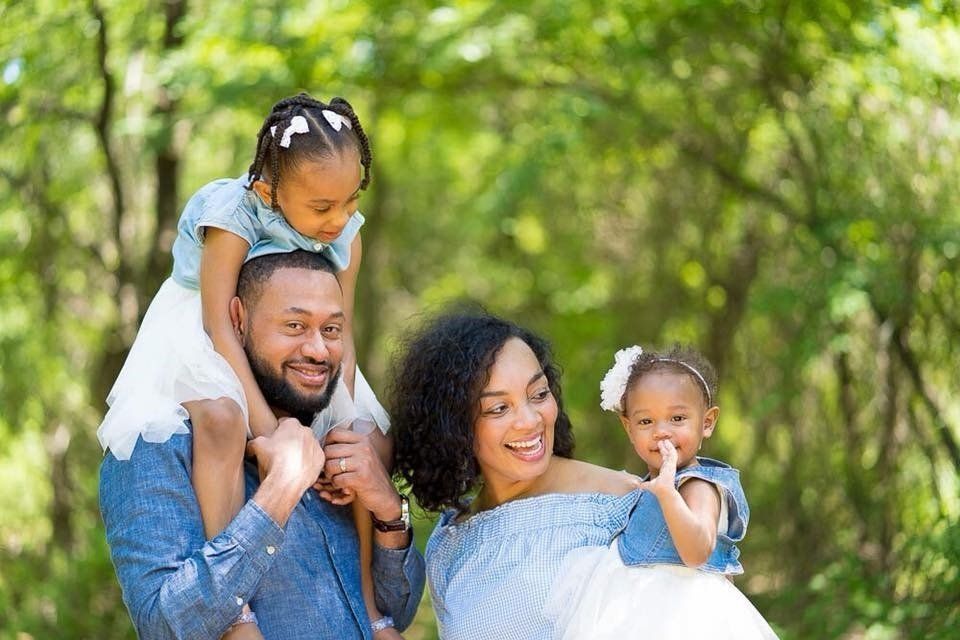
-

- MORE...
- Ministries >
- Missions >
ROCKPOINTE'S MISSION OPPORTUNITIES
Missions Home
Serve at RPC
Serve Locally
Serve Globally
How We Support Others
Serving Opportunities & Events
RPC Job Board

- Who We Are >
LEARN MORE ABOUT ROCKPOINTE
Who Is RockPointe Church?
Our Beliefs
Our Vision
Our Staff
Our History
Our Structure
Believer’s Baptism
Pray with Us
Dinner with the Pastor
Become a Member
- Resources >
- Contact Us >
ONE CHURCH, TWO LOCATIONS
Central Campus
Parker Square Campus

469.322.0313
info@rockpointechurch.org
- LOGIN
- GIVE
- INVEST
- EVENTS
- NEW HERE
Why We Celebrate Juneteenth

 To be completely honest, as a Black man in America, I’d never heard of Juneteenth until I moved to Texas in 2011. I was 25 years old at the time. Even though it represents the day that my ancestors were actually set free, I’d never been taught about it in school nor in my upbringing and if I was, it was illustrated as an afterthought. This is how many Black people feel today, like an afterthought.
To be completely honest, as a Black man in America, I’d never heard of Juneteenth until I moved to Texas in 2011. I was 25 years old at the time. Even though it represents the day that my ancestors were actually set free, I’d never been taught about it in school nor in my upbringing and if I was, it was illustrated as an afterthought. This is how many Black people feel today, like an afterthought.
Growing up in Florida, which has a heavy Northeastern influence, Juneteenth simply didn’t take center stage like holidays commemorating my West Indian friends and schoolmates.
In fact, learning about it reminds me of the first time my wife told me about Sweetest Day which is more of a Midwest thing (she’s from Ohio). It was just another thing to do but didn’t really hold any weight.
Next year marks my 10-year residence in Texas and will become the longest-tenured state I’ve lived in my entire life yet, I’m still assimilating to the culture including Black Texan culture.
One way to do that is by realizing that Juneteenth is not just a day we throw some ribs on the grill and dance to Frankie Beverly & Maze’s “Before I Let Go” or Marcia Griffiths and Bunny Wailer’s “Electric Boogie” (the song we do the The Electric Slide to). It’s a time to reflect on the freedom that our African-American fathers’ fathers couldn’t and show them respect. It’s a time to rejoice in the freedom that we as African-Americans do have today despite still having a long way to go.
Juneteenth was first recognized as a holiday in the state of Texas in 1980 and in order for all of God’s people to embrace this holiday that’s not recognized nationally but is in 45 states and Washington, DC, we must first learn about its significance that has previously been a footnote in American history.
What is Juneteenth?
Juneteenth is an annual holiday celebrating the day that slaves were told they were free in the United States. This declaration took place in Galveston, Texas on June 19, 1865, which is why many African-American Texans celebrate it with so much zeal in addition to other brothers and sisters around the country.
A misconception is that slaves were freed in January 1863, when President Abraham Lincoln initiated the Emancipation Proclamation. However, Black people actually didn’t become free until Gen. Robert E. Lee and the Confederate States of the south surrendered to the Union States of the north to end the Civil War in April 1865. Union Gen. Gordon Granger and troops traveled down to Galveston, Texas, to tell enslaved African-Americans that the war was over and that they now had their freedom with the support they needed to actually live it out. The date that this happened was on June 19, 1865, hence the name “Juneteenth.”
Celebrating Juneteenth took a backseat for many years as public school began to focus more on President Lincoln’s Emancipation Proclamation to represent the freeing of slaves instead of Juneteenth, which is the true independence day that’s recognized in Black culture, especially in the state of Texas. July 4th is also close in time which further pushed Juneteenth out of sight out of mind.
Originally, Black families –that were torn apart– and communities would come together and pray giving God thanks for delivering them from their oppressors. This regularly took place on church grounds. As time has gone on, the celebration has taken on true form similar to Independence Day (July 4th) as we know it today. You can expect parades, large gatherings to fellowship within communities, lots of food at barbecues, and an overall great time celebrating one of the greatest moments in U.S. history. Moreso, it’s a time to pass on family traditions and stories that tend to get lost over the years.
Today, Juneteenth is seen as a celebration of not only the freeing of enslaved African Americans, but achievements within the community dating back centuries. The state of Texas is an integral part in the history of African-American freedom and should be celebrated.
How We Can Celebrate Juneteenth Today
My wife and I have never really relished in the holiday as we should but as we see our daughters growing up away from family and they’re natural born Texans, we no longer can let another Juneteenth pass without reflecting and rejoicing in our heritage.
Recently, I’ve had conversations about the Black experience well before I was born. Listening to my grandmother share stories about going to school with her cousins as a child during the summertime because they had to pick cotton the rest of the year in rural Mississippi was surreal to me. Us discussing the frustration in my grandfather’s voice when he was alive and would talk about Coach Adolph Rupp not allowing Black basketball players on the University of Kentucky’s basketball team in a state where basketball is the most coveted sport. Hearing from a friend’s father how Brown vs. Board of Education ruled segregation unconstitutional only to desegregate schools instead of integrating schools. This forced Black schools to shut down and their students to attend White schools and not the opposite.
These are stories that we can’t find in history books but must be passed down from generation to generation to know where we come from and where we’re going as God’s people and Juneteenth is a great day to do that on among the other 364 days in a year.
If you’re interested in ways to learn more about, contribute to, or celebrate Juneteenth, please see some resources below.
Guest post by Eric Patrick, RPC Volunteer
ABOUT ROCKPOINTE CHURCH
RockPointe strives to provide a welcoming, family-friendly environment where people of all walks of life encounter the transforming power of a relationship with Jesus.
You will find RockPointe to be a place of imperfect, but genuine and authentic people seeking to glorify Jesus with their lives. Our hope is to point to the empowering grace of Jesus that transforms people to become impactful disciples for the kingdom of God.
The worship music is modern in style and highly gospel-centered in content. People are encouraged to passionately worship Jesus in “spirit and truth.” At RockPointe we value singing songs that are Christ-exalting and theologically rich.
We hold the Scriptures in high regard as the final authority in a person’s life. Messages at RockPointe are Christ-centered and will provide great insight as to what the Bible teaches about living your life for the glory of God. There is also a Family Room for parents to observe the services even while attending to their family needs.
Learn more about who we are here >>
MINISTRIES
Adult Discipleship
Care
Children's
Marriage
Missions
Men's
Parenting
RockPointe Weekday Preschool
Small Groups
Special Needs
Special Needs
Student
Women's
Young Adults
RESOURCES
What We Believe
Sermons
Prayer Requests
Online Bulletin
Login
Young Adults


